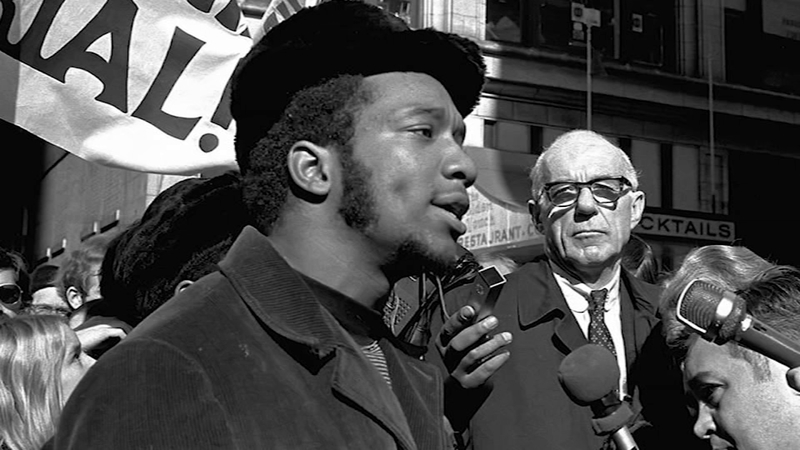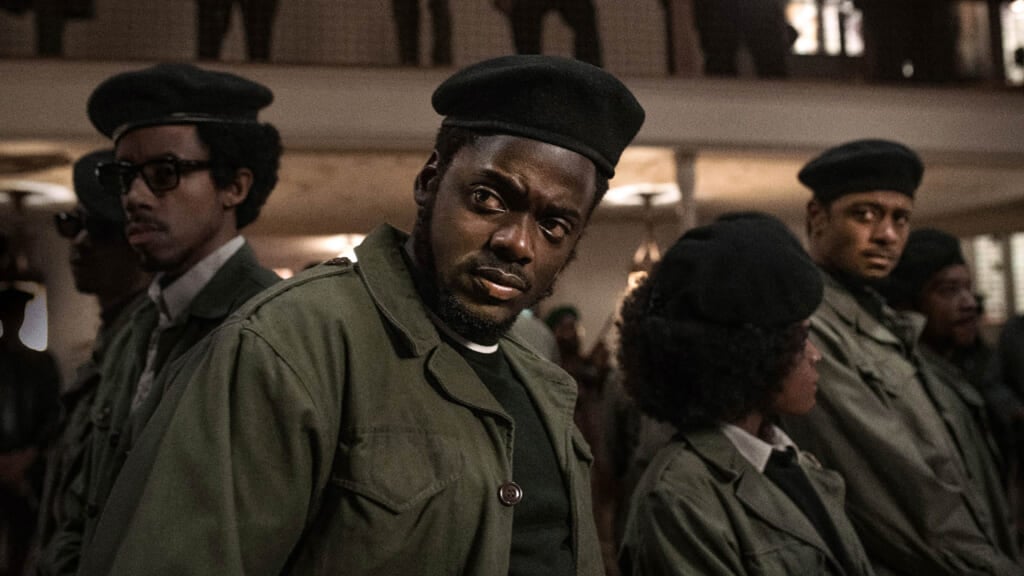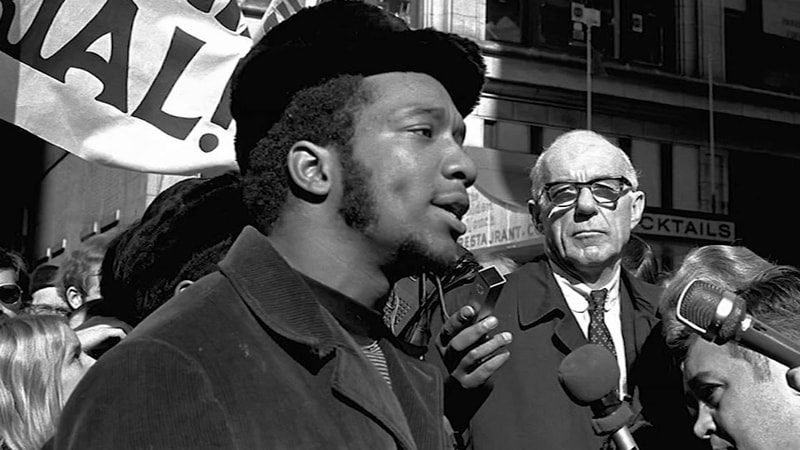Who were Judas and the Black Messiah?
The new movie about Black Panther leader Fred Hampton starring LaKeith Stanfield and Daniel Kaluuya, is in theaters and streaming today
There have already been major motion pictures that told the stories of civil rights leaders Rev. Dr. Martin Luther King Jr. (Selma, 2015), and Malcolm X (Malcolm X, 1992), but this Black History Month, the story of Fred Hampton, the revolutionary chairman of the Illinois chapter of the Black Panther Party finally makes its way to the big screen with Judas and the Black Messiah. Directed by Shaka King, the film opened today in theaters and is streaming on HBO Max.
Read More: St. Louis prison uprising reminds us inmates are being punished during a pandemic
In 1969, Hampton was spearheading various Black Panther programs such as the children’s free breakfast program and the people’s medical clinic. The 21-year-old was also unifying local gangs and activist organizations in a game-changing alliance called the Rainbow Coalition which solidified him as a major threat to the FBI’s efforts to destabilize and eradicate the BPP.
Every #BlackHistoryMonth we remember the words of those that came before us. Fred Hampton had a vision of the future that included real justice for all people. May we always fight for that vision. pic.twitter.com/w6EDfrqOEK
— Mckayla Wilkes for MD-05 (@MeetMckayla) February 6, 2021
Judas and the Black Messiah captures a snapshot of who Chairman Hampton (played by Daniel Kaluuya) was while shedding light on another important part of the civil rights and Black and indigenous liberation movements: the pervasiveness of FBI informants.

From the moment Judas Iscariot kissed the face of his dear friend and leader Jesus of Nazareth in the Garden of Gethsemane, subsequently identifying him to the Jewish authorities waiting to arrest him, the name Judas has become synonymous with traitor.
From the 1950s through the 1970s, wherever there was dynamic Black leadership, a Judas was not far behind, thanks to the FBI’s secret, illegal Counter Intelligence Program (COINTELPRO). Then FBI director J. Edgar Hoover sought to “destroy, discredit, disrupt the activities of the Black Panther Party by any means necessary and prevent the rise of a Black Messiah” according to the book The Assassination of Fred Hampton by Jeffrey Haas.
Hampton’s Judas was William O’Neal (played by LaKeith Stanfield). After being caught driving a stolen car across state lines, O’Neal, then 17, was offered a deal from the FBI for dropped felony charges in exchange for his cooperation in infiltrating the Illinois chapter of the Black Panther Party.
O’Neal’s proximity to Hampton as the chapter’s head of security ultimately led to a police raid on BPP headquarters. They fatally shot 21-year old Mark Clark and Hampton as he slept in bed with his pregnant fiancée, Deborah Johnson (played by Dominique Fishback). Despite original reports that the Panthers fired first and police were merely acting in self-defense, it was later revealed that Hampton’s death was indeed an orchestrated assassination.
Prior to his murder, the FBI attempted to silence Hampton through incarceration, as had been done with national Black Panther Party co-founder Huey P. Newton. However, this proved to be a more difficult task with Hampton. Although he was falsely charged with robbing an ice-cream truck driver of $71 worth of ice cream and distributing it to neighborhood kids, leading to a two-to-five-year prison sentence, Hampton was granted an appeal bond by the Illinois Supreme Court and released just months later.
In a 1989 interview for Eyes on the Prize II: America at the Racial Crossroads 1965-1985, O’Neal recounts, “We tried to develop negative information to try to discredit him just like we did everybody else — we, meaning the FBI. I tried to come up with signs of him doing drugs or something and never could. He was clean. He was dedicated.”

It was this dedication, along with his unique leadership skills and oratory prowess that made Hampton an asset to not only the Illinois chapter of the BPP, but as a national spokesperson and unifier of people from varying backgrounds and organizations.
“Was there a loss?” asks O’Neal. “Yes. I think that the slaying of Fred Hampton was definitely a loss to Black people in general… He was a fine leader then and he would have made a better leader.”
Read More: Netflix developing Bayard Rustin biopic with director George C. Wolfe
O’Neal ended up taking his own life in 1990, less than a year after completing the Eyes on the Prize interview. Though it was officially ruled a suicide, his death has sparked some questions.
Click here to read more about Hampton, and catch Judas and the Black Messiah streaming now on HBO Max and in theaters.
Have you subscribed to theGrio’s podcast “Dear Culture”? Download our newest episodes now!
TheGrio is now on Apple TV, Amazon Fire, and Roku. Download theGrio today!
The post Who were Judas and the Black Messiah? appeared first on TheGrio.

